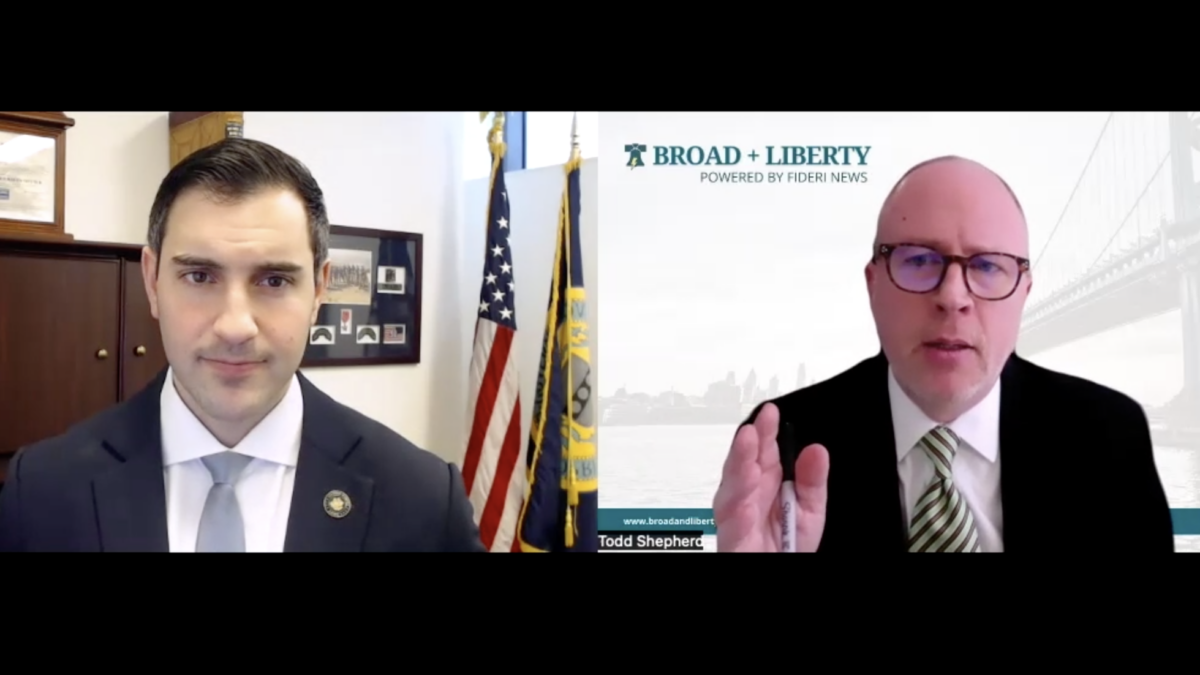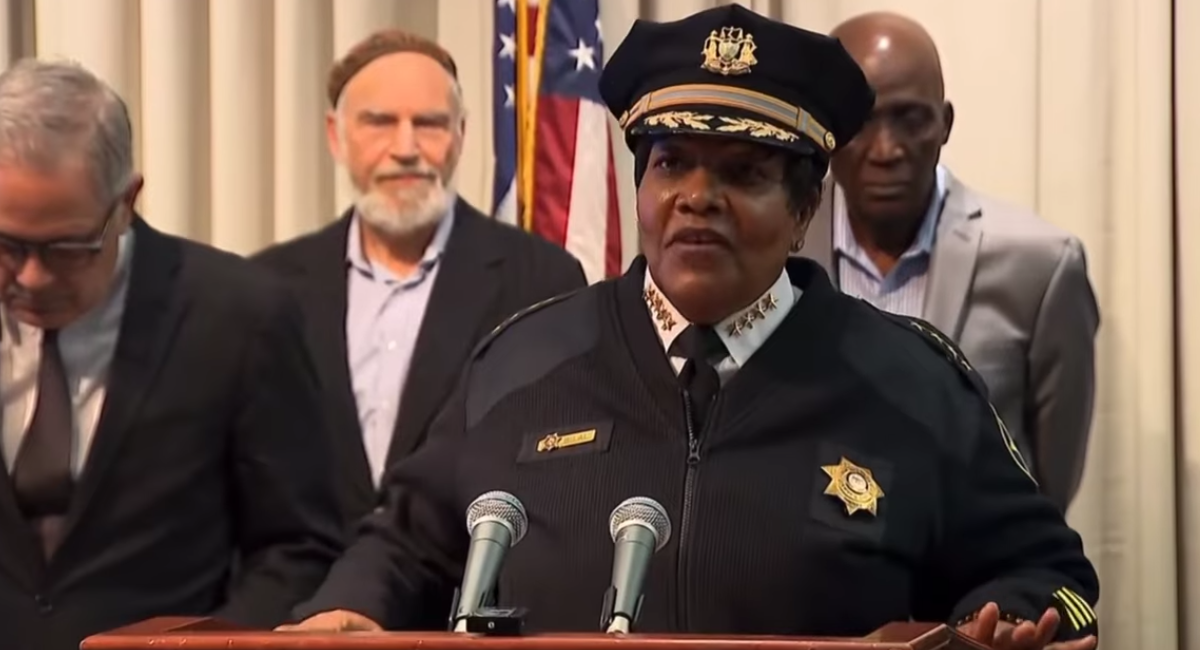State senator’s unannounced visit sparks debate over morale and management at Delco’s George W. Hill Prison
State Senator Anthony H. Williams, a Philadelphia Democrat whose district also includes part of Delaware County, voiced concerns about Delco’s George W. Hill Correctional Facility after he and other elected officials made an unannounced visit to the facility in early December.
His concerns highlight the continuing friction between the prison’s administration and its rank-and-file at a time when the prison has won a breakthrough in successfully negotiating a new union contract, but also in which the correctional officer union continues to operate under its previous no-confidence vote against Warden Laura Williams.
Management issues have also been at the forefront for the county in the nearly three years it has now run the prison, having deprivatized the facility in April 2022 after roughly three decades of being privately run. The county is facing a slew of lawsuits from persons who were fired or dismissed when the county took over, but also from employees who have remained on but claim their rights were violated in other ways under the county’s management.
Delaware County Councilman Richard Womack (D) and Sheriff Jerry Sanders (D) also attended the visit on Dec. 9, which included interviews and discussions with numerous corrections officers and mid-level managers.
Williams said he and the others made the tour after “constituents asked us to come visit because they were concerned about how the condition of the prison existed, the physical plant as well as the morale within the building.”
Yet when Broad + Liberty spoke to the senator to inquire about the motivating nature of the unplanned visit, Williams immediately seized on the matter of “expected” versus “unexpected” visits.
“Unexpected — I don’t know what the heck that means, and please print that. ‘Unexpected’ means that they want us to be prepared — they prefer us to call in advance to be prepared, and that would suggest that you need to repair something because you don’t want the normal to be what we see, which is very concerning, and that only makes you wonder what’s going on.”
The senator said his biggest takeaways from the tour were concerns over the state of the prison’s physical plant and ongoing concerns about low morale. (In the GWHCF case, “physical plant” is an umbrella term that generally means all of the physical buildings on the property, and the functionality and appearance of those buildings.)
“I expressed to [the warden] that there is a morale issue within the building and it’s not an organized one, not where people are saying ‘We’re quitting’ or ‘[we’ll] have a strike.’ But they had issues with regard to policies that they didn’t understand and the manner in which they were being managed was expressed to us on a few different separate conversations with separate employees who covered separate areas,” Williams said.
While morale concerns might sometimes be considered routine for a workplace that is notoriously stressful and is always undergoing high turnover, it was also clear that the visit exposed some raw nerves at the top of the prison’s administration.
“Someone [from the prison administration] called someone in government at the county level to complain about our visit, to suggest that they were somewhat intimidated by us visiting because… — I was stunned. I was shocked at that comment because at no point were voices raised, no one got scolded, no one got anything at any point in time,” Williams said.
“I was also concerned, frankly, by the warden’s reaction, I felt to be a little bit defensive,” Williams said at another point of the conversation.
The county offered its view, but did not directly answer a question as to whether Sen. Williams’ characterizations were correct, or if not that, were at least perhaps understandable.
“The County values collaboration and welcomes ongoing dialogue with stakeholders as it continues to …[ensure] a positive path forward for the facility and its operations,” a spokesperson told Broad + Liberty in a statement. (The full statement can be read here.)
In another part of the county’s statement, it said the visit was “welcomed” but added “[s]tate regulations, privacy considerations, and other concerns necessitate guidelines around visits from external parties.”
Efforts to interview Councilman Womack were unsuccessful, but as part of the county’s overall response, he did say: “As a former correctional officer, I have a deep appreciation for the hard work of all employees at the George W. Hill facility, and I will always be a strong advocate for the safety and overall well-being of GWH employees. I am pleased to see the ongoing capital improvements at the facility, the completion of the union agreement for correctional officers, and I will continue to be a voice for those workers.”
Although not a member of the county’s jail oversight board, Womack has been very active in dealing with prison issues, especially personnel and morale.
Requests for comment from Sheriff Sanders were not immediately returned.
The county did address part of Williams’ concerns about the state of the physical plant.
“Investments in staff training and enhanced safety protocols have been complemented by substantial upgrades to the HVAC systems and roof, with plans underway to implement state-of-the-art security technologies. These improvements are critical to ensuring the facility meets modern standards and provides a safe and effective environment for all.”
Prison assault data
County data that tracks “extraordinary incidents” within the prison shows the facility experienced 32 and 34 total assaults for May and June, respectively. A Broad + Liberty analysis of the same kinds of data sets show it’s the only time the prison has recorded more than 30 assaults in back-to-back months. Furthermore, those numbers also land at a time when the county’s incarcerated population is down anywhere from 20 to 30 percent.
When asked if the rise in assaults had any influence on morale issues, the county obliquely referenced its inspections from various parties.
“The facility is regularly examined by several groups, including the Pennsylvania Department of Corrections (PA DOC), the Pennsylvania Prison Society, and the local Delaware County Coalition for Prison Reform,” the county said. “These visits have resulted in positive reports of operations and improvements. The PA DOC recently found the facility in full compliance during an audit not required for another two years.”
While under private management, the prison was also so successful in passing its DOC inspections that it was able to earn a “skip” year in which an inspection was not necessary — a one-year exemption the PA DOC only grants when a particular inspection clears a significant number of tests. That success under private management in 2018, however, was never acknowledged in media reports or by the many persons critical of private management of the prison, including some current council members like Jail Oversight Board Chairman Kevin Madden.
Prison’s attorney fees
Meanwhile, the county’s 2024 legal bills for the prison ended just shy of $1-million, and are up sevenfold from 2021, the last full year the prison was run by a private management company, according to minutes from the December meeting of the Delaware County Jail Oversight Board.
In 2021, the prison’s total bill for outside legal help was $125,375.
In 2024, that bill climbed to $967,598.
The surge in spending comes just weeks after contentious hearings unfolded in the county administration building as angry residents questioned the five-member county council over a proposed 23 percent tax increase that was eventually approved.
A large part of the prison’s 2024 spending jump in the legal category was due to $325,000 billed in September, all assigned to the county on the same day of that month. Given the grouped nature of the billing, it’s reasonable to imagine the work was related to a single project, but as of yet, there’s no evidence supporting that idea, either. The county has refused numerous requests from Broad + Liberty to explain the nature and purpose of the $325,000 billed in September.
Todd Shepherd is Broad + Liberty’s chief investigative reporter. Send him tips at tshepherd@broadandliberty.com, or use his encrypted email at shepherdreports@protonmail.com. @shepherdreports




